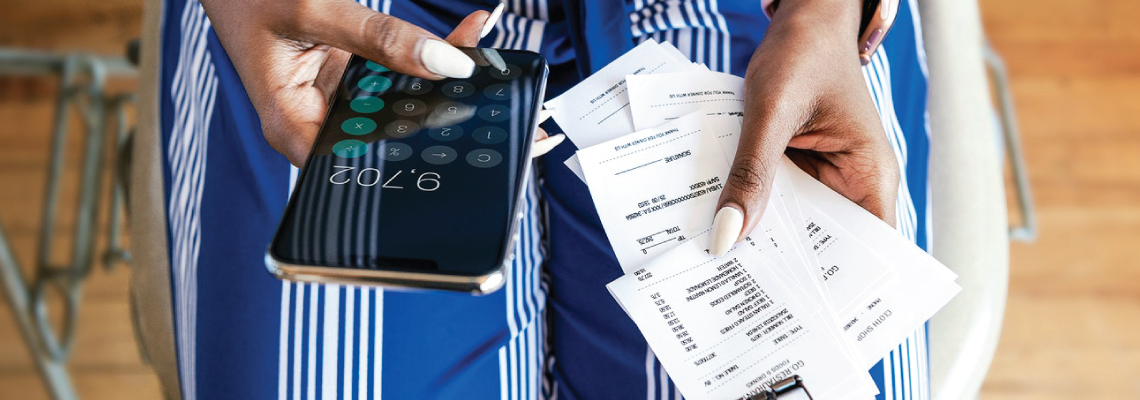Effective debt management tips in trying times

Effective debt management tips in trying times
December 3, 2020 1 comment
The countermeasures against the COVID-19 pandemic continue to plunge businesses and individual incomes into crisis levels. Almost all sectors have in one way, or another suffered the knock-on effects of COVID-19.
To plug the financial needs because of reduced incomes, many businesses and individuals have resorted to loans as economies rebound albeit slowly.
Governments, SMEs, and individuals are now competing for loans from financial institutions, thereby leading to an inevitable increase in interest rates.
If taking a loan is the only option for you or your business has to survive, then learn the best way to ensure meeting your repayment obligations. Servicing debts can be a very daunting task, especially if you don’t plan well or fail to manage the debt.
In fact, the Credit Consulting Society, warns that debts can cause problems such as stress, sleeping disorders, and marriage dissolutions, among other challenges. It is imperative, therefore, to learn how to manage your debts.
Here are a few tips that help you:
Identify ways to adjust your expenses.
Loan repayment requires that you take drastic measures to ensure a balance in your expenditure and incomes. That may include abandoning an extravagant lifestyle and cutting off all financial leakages in your business or personal finances.
Recommended article: Three signs you may not break generational poverty
Without doing this, it is unlikely that you will manage to repay the loan plus its accumulated interests. So, adjust your expenses to ensure that you meet your loan obligations.
Keeping tabs on your finances is another way of knowing whether you are on track to financial freedom or not.
In one of the Practical Money Skills blog articles, streamlining a budget and identifying discretionary spending versus essential spending was identified as a major controlling force of your expenses as well as paying debts off. You too can segment your expenditure in order of importance to solve your loan quagmire.
Establish what you owe to people.
Who are your creditors, how much do you owe, and what would be the implications if you delay paying them? If your collateral for that loan from a bank is a mortgage, then you should prioritize it over loans you got from relatives. Relatives may be more sympathetic than the bank.
Segmenting loans and their corresponding interest rates will not only give you the whole debt picture, but it will also help you make decisions about how to pay them off.
According to Latoya, I. & Somer G. A. (2020), making a list of your creditors is the first step to getting out of debt. However, don’t just create your list and forget about it. Act and start paying the loans.
Try not to default on your commitment.
Never let loans pile up before you start repayment. The moment you delay loans, they attract late payment penalties most of the time. The more penalties you pay, the more expensive your loan becomes.
 Recommended article: How SME leaders can improve the financial wellbeing of their staff
Recommended article: How SME leaders can improve the financial wellbeing of their staff
Therefore, even if you can only pay a small amount off your loan monthly, please do that. Do not decide to wait till you have a lump sum before you can clear it. When you pay on time, you will also enlist the trust of your creditors. This can lead to having your loan restructured, or an improved relationship leading to more favourable financial deals in the future.
Avoid situations where you will have to “compensate a lender for the added risk of extending credit to you”, as Campbell (2012) puts it.
Avoid unnecessary loans and their chokehold on you.
In one of our previous articles, we wrote about two types of debts: good debt and bad debt.
A good debt is one that seeks to invest in a business, increases its assets on the balance sheet, and add value to the company, either in the short or long term.
A bad debt, on the other hand, is when an entrepreneur borrows money in the name of the business but diverts the funds to satisfy his or her lifestyle needs such as drinking sprees, buying a new car, wedding expenditure among others.
So, is that loan you want to take, or the one you accepted, necessary? Here at Human Capital International, we advise you never to take a loan from the bank to start a business. Instead, you can take part in a micro-savings scheme to raise the initial capital, or sell off personal property that you do not have immediate need of. If family and friends are capable and willing to lend, it’s also a safe place to start. Only go for a bank loan as a top-up to grow the business.
Also, be mindful of the interest rates at which you are borrowing. The higher the interest rates, the higher the chances of you failing to repay the loan.
Therefore, ensure you only take a loan with the view of using it to generate more revenue not to consume.
We are definitely in financially trying times, but ensure you manage your debts and pay them as agreed. If you have challenges meeting your loan obligations, it is best to be proactive and always communicate with your financial institution or lender. Depending on your approach, institutions can put a human visage to its principles and make suitable adjustments. Do not therefore do anything to compromise your creditors’ image when they come to confiscate that collateral because you failed to communicate.
To learn more about how to stay out of debt, get a copy of the best seller book Unravelling The Secrets To Wealth Creation.


